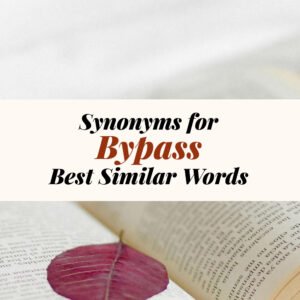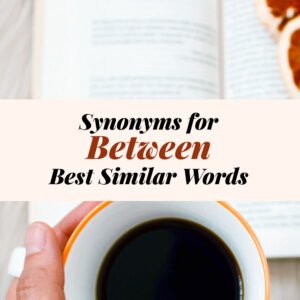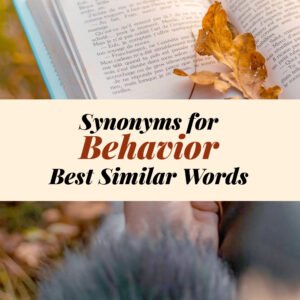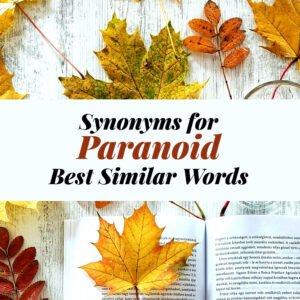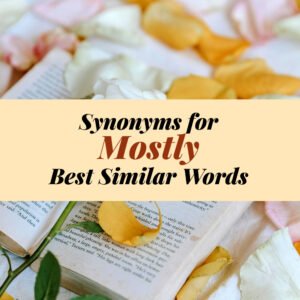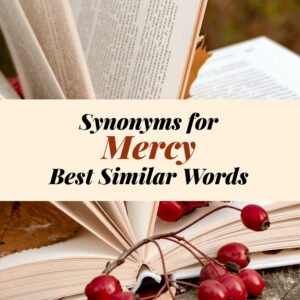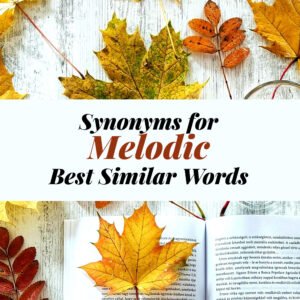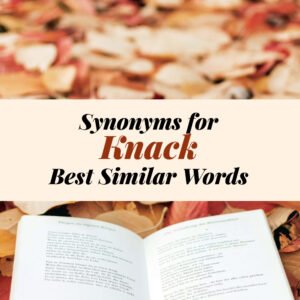Do you ever want to express nonsense in a more exciting way? Words like rubbish, balderdash, and hogwash can make your sentences more interesting and fun. In this article, we will explore 15 similar words for nonsense, their meanings, and examples to use in daily life.
| Synonym | Example |
|---|---|
| Rubbish | That idea is complete rubbish; it will never work. |
| Balderdash | Stop talking balderdash; it doesn’t make any sense. |
| Hogwash | His excuse was pure hogwash; nobody believed him. |
| Drivel | I can’t read this drivel; it is so boring. |
| Twaddle | Don’t listen to his twaddle; it’s not true. |
| Poppycock | What he said is poppycock; it is totally false. |
| Claptrap | That story is claptrap; it is made up. |
| Bunk | That theory is pure bunk; it has no evidence. |
| Malarkey | Stop spreading malarkey; it’s nonsense. |
| Fiddle-faddle | I don’t have time for fiddle-faddle; let’s focus on work. |
| Tommyrot | His comment was tommyrot; nobody agreed. |
| Moonshine | That plan is moonshine; it will never succeed. |
| Gibberish | He spoke in gibberish; I couldn’t understand a word. |
| Hokum | That idea is hokum; it is not serious. |
| Bosh | Don’t believe him; it’s all bosh. |
15 Different Ways to Say NONSENSE: Another Word for Nonsense
Rubbish
Rubbish is a great synonym for nonsense because it clearly shows that something is not correct or worth paying attention to. It works in both spoken and written situations, especially when you want to sound casual or strong. Use it when talking about ideas, statements, or claims that are clearly wrong. Rubbish makes your sentence feel honest and direct. It is a popular word in informal conversation.
- That plan is complete rubbish.
- You can’t trust that story; it’s rubbish.
- Stop giving me rubbish advice.
- All these excuses sound like rubbish.
Balderdash
Balderdash is fun to use and adds character when describing nonsense. It shows that something is not true in a slightly playful way. Use it when someone is exaggerating or lying, or when an idea seems silly. Balderdash is perfect for conversations where you want to point out nonsense without being too harsh.
- That story about the monster is balderdash.
- Don’t listen to his balderdash.
- That excuse is total balderdash.
- Stop spreading balderdash online.
Hogwash
Hogwash works best when you want to strongly reject something as false. It is very informal and often used when someone is making ridiculous claims. Use it in everyday conversation to express disbelief. Hogwash adds energy to your sentence and makes it clear you don’t accept the idea.
- That idea is complete hogwash.
- Your reason doesn’t make sense; it’s hogwash.
- Don’t listen to that hogwash.
- He tried to explain, but it was all hogwash.
Drivel
Drivel is a useful word when someone is speaking or writing nonsense that seems long and boring. It is polite enough for work situations but also works in casual talk. Use drivel to describe unimportant or silly talk. It’s helpful when you want to explain that the content is not worth attention.
- Stop writing that drivel.
- His speech was just drivel.
- I don’t want to read this drivel.
- The meeting was full of drivel.
Twaddle
Twaddle is great for talking about nonsense in a playful and light way. It is often used to describe silly talk or ideas that have no meaning. Twaddle is less harsh than some other words, making it perfect for friendly conversation. Use it when pointing out something absurd but not offensive.
- Don’t believe that twaddle.
- Stop talking twaddle.
- That story is pure twaddle.
- Ignore all this twaddle.
Poppycock
Poppycock is a fun word that can make nonsense sound dramatic or humorous. It is often used in storytelling or casual discussion. Poppycock works well when you want to exaggerate that something is completely false. Use it when reacting to ridiculous statements.
- That claim is poppycock.
- Don’t spread poppycock.
- His story is full of poppycock.
- Stop listening to poppycock.
Claptrap
Claptrap is perfect when you want to describe nonsense that is fancy but meaningless. It often refers to overcomplicated talk or writing with no real value. Use claptrap in discussions about ideas, speeches, or text that sound impressive but are pointless.
- That speech was full of claptrap.
- His explanation is just claptrap.
- Don’t waste time on claptrap.
- I ignored the claptrap in his book.
Bunk
Bunk is short, clear, and widely understood to mean nonsense. It is best used in casual conversation or debates. Use bunk when something seems untrue or silly. It is effective for showing skepticism without sounding rude.
- That theory is pure bunk.
- Don’t believe his bunk.
- This article is full of bunk.
- Stop spreading bunk ideas.
Malarkey
Malarkey is playful and works well when describing nonsense that is funny or slightly ridiculous. Use it to talk about statements, rumors, or ideas that have no truth. Malarkey is great for informal situations and adds humor to your sentence.
- Stop telling malarkey.
- That’s all malarkey.
- I don’t buy that malarkey.
- Ignore the malarkey online.
Fiddle-faddle
Fiddle-faddle is perfect when you want to describe nonsense as trivial or unimportant. It is fun to say and works well in casual conversation. Use it when pointing out things that are silly or a waste of time. Fiddle-faddle adds light humor to your talk.
- I don’t have time for fiddle-faddle.
- That task is just fiddle-faddle.
- Stop worrying about fiddle-faddle.
- His work is full of fiddle-faddle.
Tommyrot
Tommyrot is a strong word for nonsense, often used humorously. It is excellent when someone makes a ridiculous claim. Use tommyrot to show disbelief and entertain at the same time. It is suitable for storytelling or casual chats.
- That idea is pure tommyrot.
- Stop talking tommyrot.
- Don’t believe the tommyrot.
- His theory is total tommyrot.
Moonshine
Moonshine works well when talking about ideas or plans that are foolish or impossible. It gives a clear image of something unrealistic. Use moonshine to reject bad ideas politely or with humor. It’s especially fun when talking with friends or colleagues.
- That plan is pure moonshine.
- Don’t follow moonshine advice.
- His dream is just moonshine.
- Stop listening to moonshine.
Gibberish
Gibberish is great for nonsense that is confusing or impossible to understand. It can describe spoken or written nonsense. Use gibberish when someone talks too fast or writes meaningless words. Gibberish is fun and descriptive for chaotic communication.
- He spoke in gibberish.
- I couldn’t read his gibberish.
- That comment was pure gibberish.
- Stop typing gibberish.
Hokum
Hokum is perfect for nonsense that seems fake or silly. It often describes stories, ideas, or advertisements that are exaggerated. Use hokum when reacting to unrealistic claims. It adds a slightly humorous or critical tone.
- That story is hokum.
- Don’t believe the hokum.
- The plan is full of hokum.
- Ignore all that hokum.
Bosh
Bosh is short, strong, and effective for nonsense. It works in informal settings to show that something is completely false. Use bosh for clear, quick rejection of ideas. It is memorable and expressive.
- Stop saying bosh.
- That idea is pure bosh.
- Don’t listen to bosh.
- His story is bosh.
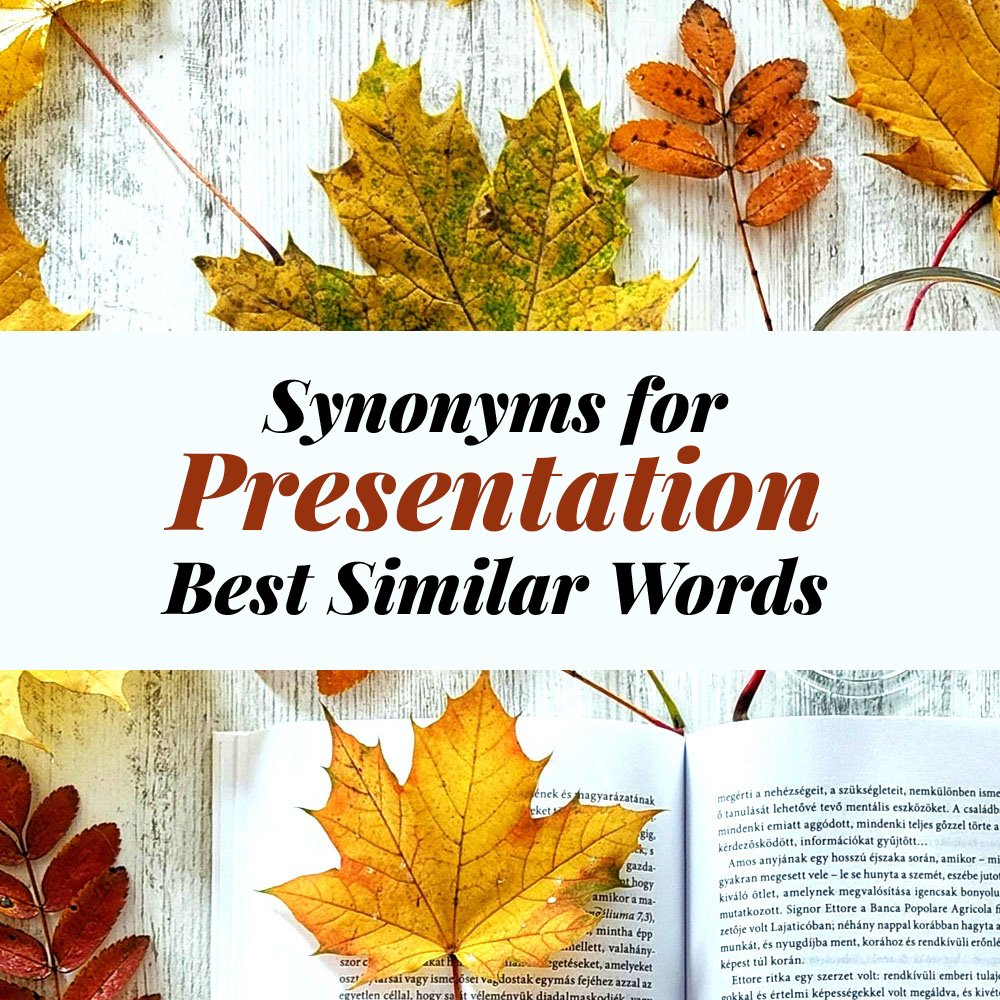
Final Thoughts
Using different words for nonsense can make your conversations more lively and expressive. Words like rubbish, balderdash, and hogwash help you reject false ideas confidently. Try using these synonyms to make your speech and writing more engaging.

